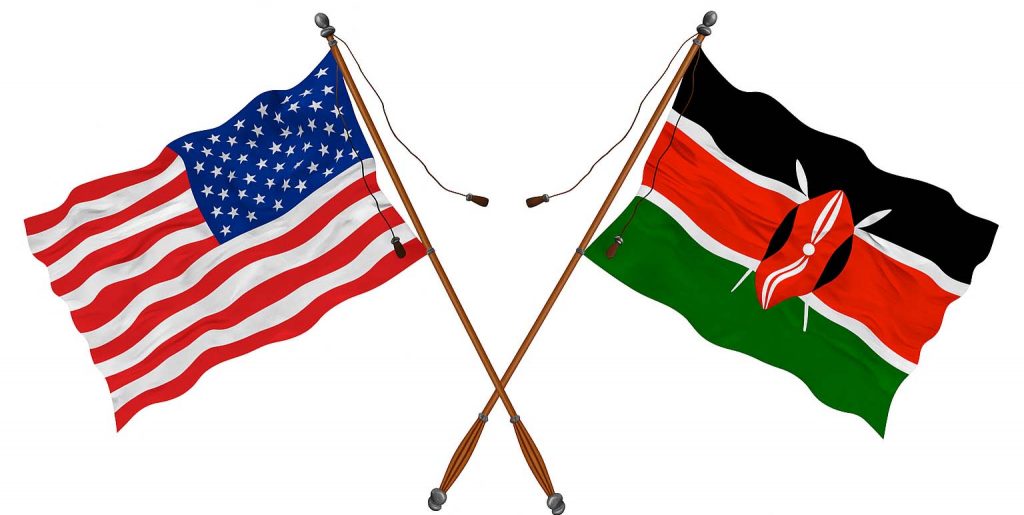
Bʏ Mᴀʀʏ Mᴡᴇɴᴅᴇ,
In July 2022, Kenya took a bold step toward reshaping its trade future by launching a Strategic Trade and Investment Partnership (STIP) with the United States, shifting from prior free trade agreement (FTA) negotiations to focus on non-tariff commitments across several economic sectors to boost growth and regional integration. Key areas include agriculture, digital trade, environmental issues, and worker protections, with the goal of setting “high-standard commitments” that will benefit businesses and workers while supporting Africa’s economic development.
The move signaled recognition that the African Growth and Opportunity Act (AGOA), though beneficial for over two decades, was not enough to guarantee sustainable and predictable access to the U.S. market. By seeking a framework that is more reciprocal, structured, and long-term, Kenya positioned itself as a trailblazer in U.S.–Africa trade relations.
AGOA, first enacted in 2000, granted eligible Sub-Saharan African countries duty-free access to the U.S. market on more than 6,000 products. For Kenya, this preferential scheme has been particularly valuable in sectors such as textiles, apparel, and agriculture, with thousands of jobs tied directly to exports under AGOA. However, the program has always been time-bound and subject to U.S. policy decisions, creating uncertainty for investors and exporters alike. The upcoming expiry of AGOA in 2025 further sharpened the urgency for Kenya to look for a more predictable alternative.
The STIP was conceived to address these gaps. Unlike AGOA, which is a unilateral preference granted by the U.S., STIP aims to create a two-way, mutually beneficial framework. Negotiations cover a wide range of areas, including agriculture, digital trade, workers’ rights, regulatory practices, and support for micro, small, and medium-sized enterprises (MSMEs). By embedding these aspects into a structured trade arrangement, Kenya hopes to secure a foundation that will not only stabilize its export market but also attract long-term investment.
Kenya is intensifying efforts to secure its trade future with the United States after a three-day mission to Washington D.C. led by Cabinet Secretary for Investments, Trade and Industry, Lee Kinyanjui. Accompanied by Principal Secretary for Trade Regina Ombam and senior officials, Kinyanjui engaged U.S. government and business leaders on boosting economic cooperation, addressing tariff challenges, and preparing for life beyond the African Growth and Opportunity Act (AGOA). Speaking at the U.S. Chamber of Commerce, he underscored Kenya’s stability, strong policy framework, and investor-friendly environment, positioning the country as both a reliable destination and a gateway to Africa’s wider market.
For the U.S., Kenya offers a strategic partner in East Africa. Kenya is already one of the largest exporters to the U.S. in the region, and its role as a logistics and financial hub makes it an ideal entry point for American businesses eyeing the African market. The STIP therefore serves U.S. interests by providing a reliable trade ally while promoting economic development in a region where geopolitical competition is intensifying.
For Kenyan businesses, the benefits of such a partnership could be transformative. Beyond simply ensuring continued access to the U.S. market, STIP opens up new opportunities in areas such as digital trade and services, sectors where Kenya is increasingly making a mark. By aligning regulatory practices and strengthening cooperation on standards, the agreement could also reduce non-tariff barriers that have long frustrated exporters.
Critics point out that negotiating a bilateral arrangement with the U.S. could raise concerns within the African Continental Free Trade Area (AfCFTA), which emphasizes collective bargaining by African states. Kenya will need to balance its national interests with its continental obligations, ensuring that STIP does not undermine Africa’s push for regional integration.
